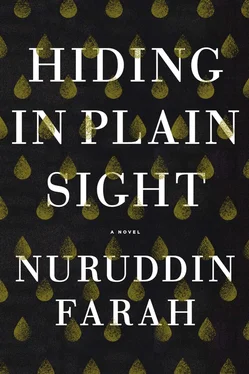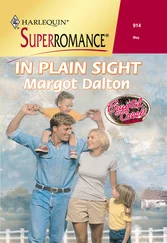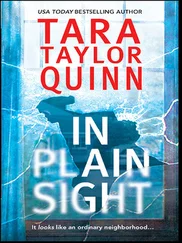“I did take photos before on commission, photos that were published in magazines in Italy and France — not of animals, but only of people and landscapes. This visit, I have been too busy to take any, but I plan to do so soon,” says Bella.
“Have you taken pictures of the Somalis here?”
“I did so on my last visit a couple of years back from the vantage point of an attic two flights above an Italian restaurant on Mama Ngina Street. My subjects — three Somali men, each more handsome than the next — had no idea I was taking their photos. I also took pictures of Somali women in all sorts of outfits, some as striking as they were mysterious on account of their self-exclusion.”
Bella takes a sip of her water and then waits with the studied patience of an angler for someone to comment on what she has said. When no fish takes the bite, she tells them about the Italian owner of the restaurant, who made a subtle pass at her. “What nerve!” she said.
Salif seems uncomfortable and changes the subject. “Tell us more about the subjects of your photographs, Auntie Bella.”
But Valerie interrupts, “It always amazes me how good-looking Africans generally are compared to other peoples. Smooth skins, broad features, gorgeous eyes, statuesque, the palms of their hands as pale as the stones at the bottom of a lake, shiny and clean. They are gorgeous people, the men as well as the women. I would love to see some of your photographs.”
Padmini says, “I can’t stand the veiled women.”
“If you want to know the women, you must visit them in their private spaces,” Bella says. “There is a falsity, a sort of subtle theatricality, to them when you view them in public spaces.”
Valerie says, “They strike me as pretentious.”
Padmini says, “How can a country blessed with so many of the world’s most famous models, the world’s most stunning women, deny us the pleasure of feasting our eyes?”
Dahaba remembers Aar telling her that there was a time when the only veiled women in Somalia were the Arab women, Yemenis. “Covered from head to toe and all in black, as if in mourning.”
“I recall our Somali neighbors in Uganda,” Padmini says, “and after we relocated to England, we had Somali neighbors in our area of town too. In Uganda, they struck me as the most colorful people, their clothes far more beautiful than any sari. In England, however, where there is a growing population of Somalis, they are unsmiling, their expressions dour, and they dress all in gray.”
“What do the two lots of Somalis have in common?” asks Salif, “the Somalis of your childhood in Uganda and the Somalis in England?”
Padmini says, “They are all a noisy lot.”
“What else?” Salif asks.
“In Uganda, their daughters are irresistibly fetching, unlike any I have seen. In fact, I can trace my fascination with women’s faces and bodies to this period of my life. I envied them their irresistibility! But they had no time for me. Look at Bella, and look at Dahaba, both of you lookers in your own ways. It would be criminal to deprive us of the pleasure to see either of you.”
Valerie asks Bella, “Are veiling and infibulation linked in any way?”
“No link whatsoever.”
Padmini says, “Is there a difference between infibulation or female circumcision and genital mutilation, which seems to be the term these days?”
“None,” replies Bella. “Both terms describe the total removal of the clitoris, a most terrible barbarity to which our Somali society subjects women.”
Valerie makes as if she has to choke, as if she can’t bring herself to ask the question she means to ask. Then she takes a large sip of her drink so as to gain the mad courage to speak, and she says to Bella, “I’ve always meant to ask but haven’t dared to. Did the brutes do it to you too?”
Salif is shocked into silence. Padmini looks up at the ceiling. Even Dahaba disapprovingly says, “Mum, how can you?”
But Bella coolly answers, “My mother spared me that.”
“Just as Aar spared our daughter, right?”
In the silence that follows, Bella watches with no small shock as Salif brings out a cigarette pack and a lighter. Holding a cigarette between his thumb and forefinger, he rolls it and turns it and sniffs at it. Bella can’t tell if he is trying to provide a distraction or provoke a reaction from everyone present, especially his mother. Will she rant and rail, advise him against smoking? But Bella won’t say anything, given that Valerie is here.
Bella remembers when she was Salif’s age, maybe even a year younger, and she lit her first cigarette at a friend’s party. Later at school, she and her classmates would hide and puff away, doing all they could to avoid detection or punishment. At home, she would pilfer the odd cigarette from Aar, who by then was a heavy smoker. Despite his disapproval, Bella’s habit grew, and she smoked on and off until eight years ago, when she kicked the habit with considerable difficulty, not because she wished to please her mother or brother and not for health reasons, but because once antismoking laws began to be passed, she hated belonging to the smokers’ parliaments huddled outside bars and buildings, puffing away together to feed their nicotine cravings.
In any event, Salif doesn’t light his cigarette. After playing with the cigarette for a while, he replaces the lighter in his shirt pocket and lodges the cigarette above his right ear.
Valerie says nothing about the incident and then changes the subject altogether. She says to Salif, “Apropos of visiting us in India, would you like it if we found you a school in our town?”
“As things stand now, we wouldn’t,” he says.
“We’ve been uprooted enough times, Mum,” says Dahaba. “We would like to complete school here.”
“What about schooling in the UK?”
“We are happy here, Mum,” says Dahaba.
And Salif says, “We don’t want to live in the UK.”
“Why don’t you think you would be happy in England?”
“Black boys my age have big problems in England. Often, they run into trouble with the school authorities or with the neighborhood police. I’d be viewed as a threat to the established order run for the benefit of those of a color different from mine.”
“Would Dahaba be viewed with the same lens?” asks Padmini, and she looks at Bella, as if willing her to say something.
“Girls fare better,” says Salif.
“Why is that so?” Padmini asks.
“Because they are not seen as a threat.”
“Who have you been talking to about England?” asks Padmini.
Salif gives the matter serious thought. Then he says, “I follow the news. In England, I could easily end up in a detention cell for being black, male, young, and for bearing a Muslim name.”
“You speak with clarity,” says Padmini. “I am impressed.”
And with that, they are all ready to call it a night.
Bella is up very early, while the rest of the household is still asleep. She enjoys the quiet as she sits at the kitchen table and writes the phrase “home processing” on a pad and then underlines it. She is designing a very simple darkroom where Salif and Dahaba can learn to process film and have a bit of fun. Later, she can modify it so that it will serve her professional requirements. Since before dawn, she has been moving about with stealth, taking measurements. She settled on the spare room as sufficient for this purpose. Ideally, she would have preferred a basement or a room directly under the stairway, or an outbuilding or a stand-alone garage, as these are easier to black out using masking tape to block the light entering through any cracks. But none of these exist, and the bathrooms are too small for the purpose she has in mind. The spare bedroom will do, with an extractor fan installed to provide adequate ventilation. In addition, she will need an electrician to install more outlets for the enlargers and the dryers, and a plumber for the water supply needed for washing prints. Mahdi will know the right people to hire; she writes his name on the pad and then underlines it twice to remind herself.
Читать дальше












